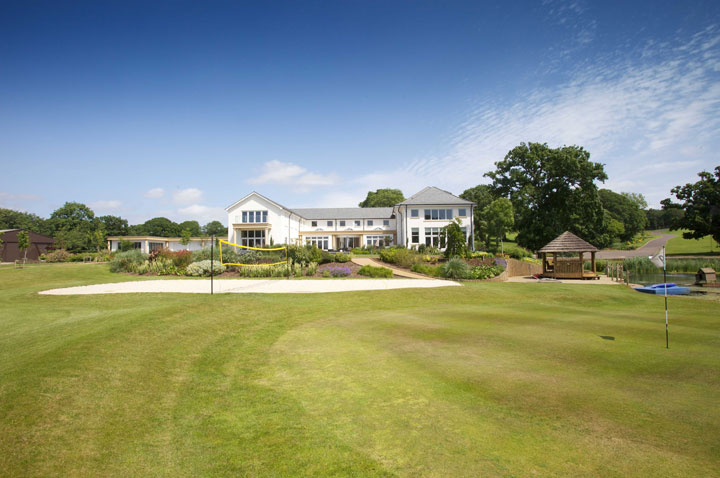At one time having a house that backed onto the plush green fairway of a golf course meant kicking out a lot of extra cash. That’s still the case in some instances, says Toronto real estate agent Dave Pratt, but having a putting green just beyond your backyard doesn’t have the same cachet it once did.

“I think owning a house on a course is less attractive than it once was, and that’s because interest in the sport has flattened,” said Pratt.
READ MORE: 4 dos and don’ts of buying your first home
Part of the issue is that many people who buy property on golf courses don’t actually play the sport. They like the notion they won’t have neighbors behind their home and that the grounds their house borders will be nicely manicured. For example, Pratt said only 40 per cent of the people who own homes on the Greg Norman-designed Wyndance Golf Club in Uxbridge, Ont., actually play the sport, though they get a free membership with their house purchase.
Pratt said homes that are in heavily urban areas and back onto prestigious courses—like St. George’s Golf and Country Club in Toronto’s west end—do receive a premium when sold. In other instances, homeowners struggle to get a significant premium for their house when it backs onto a course.
- Posters promoting ‘Steal From Loblaws Day’ are circulating. How did we get here?
- Video shows Ontario police sharing Trudeau’s location with protester, investigation launched
- Canadian food banks are on the brink: ‘This is not a sustainable situation’
- Solar eclipse eye damage: More than 160 cases reported in Ontario, Quebec
Pratt said in the past homeowners often sought a 10 per cent premium for their golf course homes. They still get it, he said, but not as readily as in the past.
READ MORE: Looking to buy a home? Ways to save for the down payment
In recent years, there have been some recognized downsides to owning a home on a golf course as well. There are numerous instances of homes backing onto golf courses getting hit by badly struck golf shots. In Canada, one of the most notable battles between a homeowner and a course involved Islington Golf Club, a historic course designed by architect Stanley Thompson. In that instance a new home was built, despite the protests of the club, just to the right of the landing area on a par four on the course’s front nine. The result was the house was hit with numerous golf balls. The homeowners successfully sued the club, and Islington in turn built a fence 24 meters high to keep balls from striking the home. Similar lawsuits have occurred in other jurisdictions, including in the New York suburb of Scarsdale, where fabled course Quaker Ridge is on the receiving end of a legal fight over golf balls and a neighbouring home and has also erected a fence in front of multi-million dollar homes.
Tony Evershed, a golf pro who has worked in golf course real estate, said one of the issues is the uncertainty around many new developments. If people buy property next to a golf course, what happens if that course closes? The U.S. has seen about 150 courses close each year, and recently several courses in Canadian urban hubs like Toronto and Calgary have been sold for their real estate value, leaving home owners who border the properties angry.
“If the course doesn’t make it, you’ll find you lost value on your home,” Evershed said. “And I don’t think as many young couples are anxious to have a home on a golf course.”
Pratt said recent golf course closures aren’t an indication of the sport’s struggles, but the fact the land they occupy is often very valuable. That said, zoning restrictions limit the ability of owners to develop the properties, he added.
“It isn’t as easy to sell a course for development as some may think,” he said. “And often the owners who want to sell them, well, their math doesn’t work.”




Comments